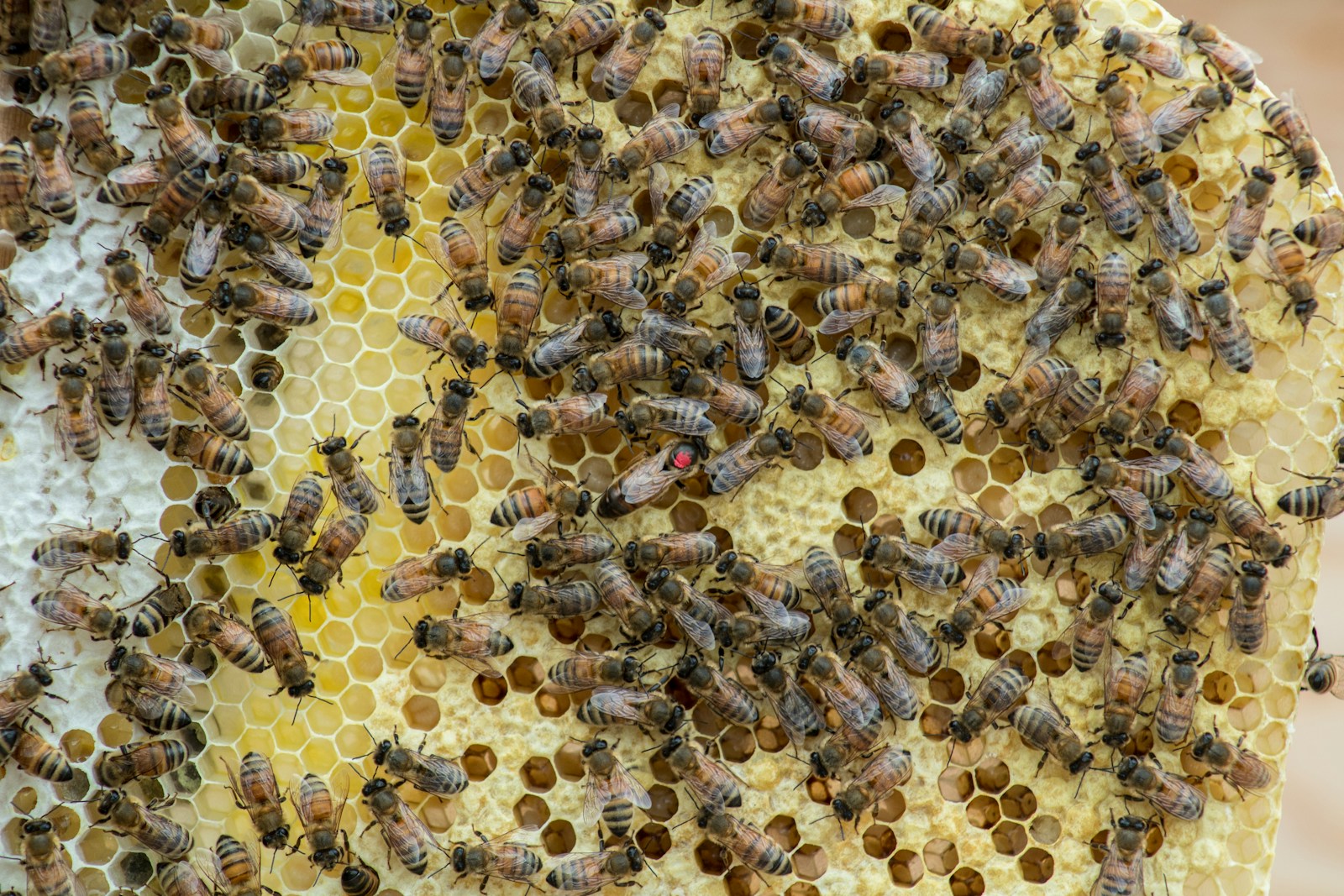
蜜糖
mì táng

honey
In Chinese, '蜜糖' is often used in a similar way to its English counterpart. It can refer to the sweet substance produced by bees, or it can be used metaphorically to describe something or someone sweet and pleasant. For example, it is commonly used as a term of affectionate address, similar to 'honey' in English.
Example sentences using: 蜜糖
蜜糖在我朝餐面包上。
mì táng zài wǒ zhāo cān miàn bāo shàng.

Honey is on my breakfast bread.
This sentence simply describes a common situation where honey is used as a topping on breakfast bread. It uses 蜜糖(honey) at the beginning of the sentence.
她的皮肤像蜜糖一样甜。
tā de pí fū xiàng mì táng yí yàng tián.

Her skin is as sweet as honey.
This is a metaphorical comparison using 蜜糖(honey) to describe sweetness usually in the context of a person's attractive trait, generally their skin in this scenario.
蜜糖是他最喜欢的糖果。
mì táng shì tā zuì xǐ huan de táng guǒ.

Honey is his favorite candy.
This sentence expresses a person's preference for honey over other types of sweets, referring to 蜜糖 (honey) as a candy-like treat.
你嘴唇像蜜糖一样甜。
nǐ zuǐ chún xiàng mì táng yí yàng tián.

Your lips are sweet like honey.
This sentence uses a metaphor, comparing the sweetness of someone's lips to honey. It's an expression often used in a romantic context.
绿茶和蜜糖是完美的搭配。
lǜ chá hé mì táng shì wán měi de dā pèi.

Green tea and honey are the perfect match.
This sentence expresses an opinion about the combination of green tea and honey being an excellent pairing. 蜜糖(honey) is used as a flavoring component in the context of drinks.
他把蜜糖加到了热牛奶里。
tā bǎ mì táng jiā dào le rè niú nǎi lǐ.

He added honey to the hot milk.
This sentence describes an action where honey is added to hot milk. It presents a common usage scenario for 蜜糖(honey) in food preparation.
蜜糖使我的嗓子感到好多了。
mì táng shǐ wǒ de sǎng zǐ gǎn dào hǎo duō le.

Honey made my throat feel much better.
In this scenario, honey is recognized for its soothing effect on the throat, often used as a natural remedy for coughs and colds.
我把蜜糖涂在面包上。
wǒ bǎ mì táng tú zài miàn bāo shàng.

I spread honey on the bread.
This sentence describes an activity in which honey is applied as a spread on bread. It presents a routine usage of honey in a typical diet.
我喜欢在饭后喝蜜糖甘菊茶。
wǒ xǐ huan zài fàn hòu hē mì táng gān jú chá.

I like to drink honey chamomile tea after meals.
This sentence expresses a personal preference for consuming honey chamomile tea after meals. It incorporates honey in the context of tea drinking.
蜜糖使他的蜂蜜酸奶变得更甜。
mì táng shǐ tā de fēng mì suān nǎi biàn de gèng tián.

Honey made his honey yogurt even sweeter.
This sentence illustrates how honey can enhance the sweetness of food, in this case, honey yogurt. It showcases honey in the role of a taste enhancer.